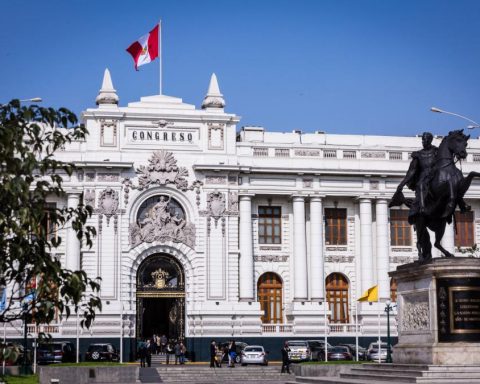Finally, the Ministry of Finance uncovered its cards and confirmed the budget adjustment that it will carry out this year, which was far from the $33 billion that was initially proposed by the same Government after the suggestions of the National Fiscal Policy Council and goes in the wrong direction. of the belt-tightening that the economic study centers have been asking for for months.
According to Minister Ricardo Bonilla, after this week’s Council of Ministers, where President Gustavo Petro was also present, it was determined that the adjustment of the spending budget for the current period will be $28.4 billion, equivalent to 5.6 % of the total approved budget for the year. This reaffirms the $20 billion that were suspended in June and adds an additional contingent.
More information: The sectors that will feel the cut of $28.4 billion to the 2024 Budget the most
“This cut includes both the $20 billion budget deferral announced in June, as well as an additional $8.4 billion that arises as a result of the analysis of the Nation’s current economic situation. The cut, which occurs as a result of the drop in tax revenues, is an example of the commitment of the National Government ceithern fiscal discipline and compliance with the Fiscal Rule,” they explained in the Treasury.
In explaining how this adjustment will be carried out, Bonilla González noted that $18.2 billion will be cut in the operating area and the sectors that will have the greatest decreases are Treasury with $11.8 billion, Labor with $3.9 billion, Defense with $606,000 million, Judicial Branch with $452,000 million and Prosecutor’s Office with $347,000 million.
Ricardo Bonilla, Minister of Finance and Public Credit
House of Representatives
“con Regarding investment, there will be a cut of $10.1 billion that will be led by the Social Inclusion and Reconciliation sector with $1.8 trillion, followed by Treasury with $1.7 trillion, Transportation with $1.4 trillion, Agriculture with $1.2 trillion and Housing with $647,000 million,” they highlighted.
It’s not enough
With the accounts presented by the Ministry of Finance, various analysts consulted by Portafolio regretted that the calls for the tightening of the belt to be stronger were not heard, to reduce the country’s dependence on debt and alleviate the pressures that exist these days. about the tax rule.
Luis Fernando Mejía, executive director of Fedesarrollo, indicated that now the way forward must be sub-execution, that is, materializing the cut indirectly, under a modest allocation of budget items in the remainder of the year and in this way complete the task on the other hand.
Other news: Minambiente announces creation of first temporary nature reserve in mining area
“The budget cut of $28.4 billion for this year, about $5 billion less than initially announced, is insufficient to guarantee compliance with the rule in 2024, among other reasons because the collection is about $9 billion below the goal adjusted downwards in the middle of the year,” he indicated.
For Mejía, “the only way out would be for the underexecution of the budget to allow have an additional margin to accommodate the insufficiency in the size of the cut and the lower income from tax collection so far this year.”

Debt
PHOTO: iStock
Meanwhile, José Manuel Restrepo, former Minister of Finance and rector of the EIA University, stated that it is clearly an insufficient cut compared to the analyzes that said that this adjustment should exceed at least $50 billion, as is the case of the Autonomous Committee of Fiscal Rule.
“We run the risk of failing to comply with the fiscal rule, a matter that is not small because it could eventually lead us to a higher country risk premium, a higher exchange rate and, above all, a higher level of the cost of public and private financing in our country, so it is an insufficient cut,” he explained.
Restrepo Abondano added that everything that is happening is “a message to the National Government not to repeat the same mistake in the 2025 budget decree, it is a fact that we are going to walk towards fiscal dictatorship, where the government will indicate the budget, “But you have to be responsible and adjust next year’s Budget, at least by the $39 billion that is being projected.”
You may be interested in: Financing Law: the effect that the proposal would have on the income tax return
Future projections
For the Ministry of Finance, the budget adjustment is the result of the drop in tax revenues this year, which despite the adjustment they experienced in the middle of the year, still continue to show numbers in the red. This is why experts ask to be consistent with fiscal reality and avoid unnecessary risks.
However, Camilo Pérez, Camilo Pérez, director of Economic Research and Market Analysis at Banco de Bogotá, highlighted that “I think it is positive that it is a little lower than what they have previously announced, it raises concerns but in some way, in the “To the extent that the Government has more information than analysts and the general public about public finances, one should trust that the cuts they are making are sufficient.”
“Our calculation was that almost $60 billion pesos were going to be cut for the entire year and we have already been writing that it is $28 billion with this decree and the other $30 billion will come from underexecution. In this way, What we could expect is precisely that this underexecution will increase,” he said.

Economic recession
iStock
In the same sense, César Pabón, César Pabón, head of economic research at Corficolombiana, assures that “it shows commitment on the part of the Government to comply with the fiscal rule, although slightly lower than initially planned. The fact that it is lower than what was announced means that the additional adjustment is $20 billion. I do believe that it will be very important that there be, so the specific figure is $20 billion that would be needed to comply with the fiscal rule.”
Meanwhile, the former vice minister of Finance, Juan Alberto Londoño, He criticized that “in the 2024 fiscal framework, the Minhacienda itself mentioned that the adjustment in spending should be $51 billion and given the poor behavior of collections, the adjustment should be greater. The risk of failing to comply with the Fiscal Rule is very high and the effects of non-compliance will be very serious for investment and financing.”
Finally, it must be said that this Government announcement did not go down very well in Congress, where the question is where the money will come from to finance the commitments that have already been made and they warn that the fiscal risks are increasing.
Representative Wadith Manzur said that “today the concern is not the freeze, nor the budget cut, because it was already more than evident that this was coming. The problem is knowing how they are going to replace what they have already spent, Knowing that there was no money to pay, how are we going to prevent this from happening to us next year?


















